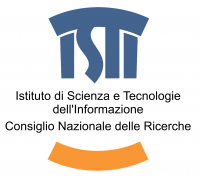Cesar Gonzalez-Perez, Patricia Martín-Rodilla
Most of the efforts that are made in the realm of information technologies and archaeology are directly related to data or information. However, information technologies have been also successful in organising and improving processes as well as data. Recent debates in the field of archaeology suggest that the formal treatment of process, often neglected, is becoming more and more present in the research arena. European initiatives such as DARIAH and ARIADNE, as well as numerous academic works in recent CAA conferences and other venues, recommend that we start paying serious attention to the systematic study of how people do things in archaeology.
This session aims to address this by, precisely, analyzing how people do things in archaeology, i.e. by studying the processes, products, actors and related aspects of archaeological practice from an abstract viewpoint and beyond anecdotal evidence.
Major research areas that are welcome in the session include (but are not limited to) the following:
- What are the key “products” of archaeological work? What models, documents, ideas, artefacts, etc. are used, changed or generated, and how?
- What is the relationship between the “primary” material evidences and the “secondary” information records that are derived from them? How are the latter constructed from the former?
- Who are the key actors in the process of archaeological practice? What individuals, roles and groups act upon the material evidence and the information, and how?
- What kinds of processes, tasks and techniques are employed in archaeology? Who uses them and why?
- What kinds of tools are used in archaeology, and how do they mediate in the interaction between actors and things?
- What kind of workflow takes place within an archaeological project? What tasks occur before what others, and why? What products are used by whom? Who participates and how? What tools are used?
- Do we use methodologies in a prescriptive manner, in order to guide the work? Or do we use them descriptively, to report on what was done?
- What kinds of reasoning processes take place that use archaeological information as input and/or output?
- How are reasoning processes in archaeology, and the information that they use and produce, visualized for better understanding and interaction?
- Do we improve our archaeological practices over time? How do we measure this “progress”?
- How do we build consensus decisions on top of archaeological evidence?
Please bear in mind that the session is intended to focus on the theoretical and analytical study of archaeological practice, rather than on the detailed account of specific case studies.
The session will be of interest to people who:
- Design documents, models and other products or results of archaeological work.
- Specialize in the use of a particular archaeological tool or technique.
- Are interested in how knowledge is created, refined, visualized and shared from archaeological evidence.
- Need to assess the impact of the adoption of a tool or technique on the overall results of their work.
- Make decisions about standards adoption or methodological choices, either small- or large-scale.
- Are responsible for archaeological or inter-disciplinary teams who need to work together in complex projects sharing a common methodology.
- Are interested in the mechanisms by which meaning is constructed in archaeology, either individually or collectively.


